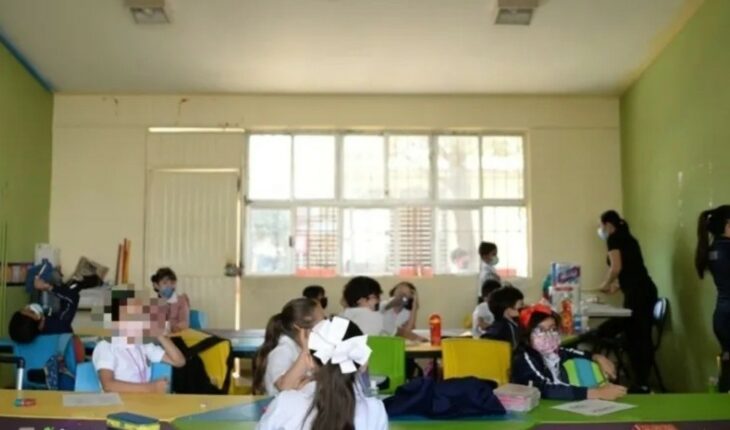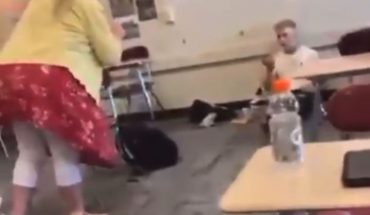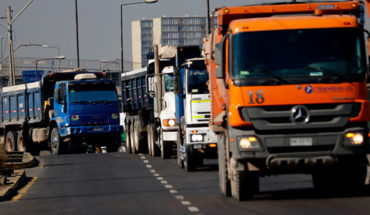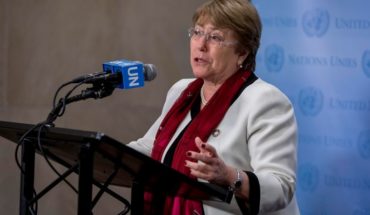The cancellation of the Full-Time Schools Program leaves more than 3,600,000 children exposed to social risks, such as organized crime recruitment, sexual and physical abuse and domestic violence, according to civil and academic organizations. Juan Martín Pérez García, regional coordinator of Tejiendo Redes Infancia in Latin America and the Caribbean, considered for Debate that this decision goes against the poorest children and women, and is a violation of the best interests of children, as well as unconstitutional. For Maelvi Muñoz, a teacher in education and knowledge management, the announcement of the cancellation of the program is “a punishment to the beneficiaries for something for which they are not responsible.” Read more: No more lies! In Sinaloa, Governor Rubén Rocha Moya has spoken out with the intention of taking responsibility for this program from the state coffers so that it does not disappear in the region. Organized crime On February 28, the Ministry of Public Education (SEP) announced the elimination of the program. The main argument, as has happened with other programs that have disappeared in the López Obrador administration, is that the model lent itself to corrupt practices. This program operated since 2007 and provided six- to eight-hour days for minors. Juan Martín Pérez García added that the characteristics of these schools is that they were located in the poorest or most violent areas of the country, even, he said, half of these educational centers were in areas with high rates of violence, precisely as a protection factor. “Which means now that the children, at 12:30 p.m. in primary school, 1:40 p.m. in secondary school, are left alone until their working mother returns at 7 or 8 p.m. All those hours are representing risks at home, abuse of other adults that can translate into early pregnancies, recruitment of criminals, among others,” he said. No evidence: Muñoz In turn, he criticized that this act is a continuation of what the administration of President Andrés Manuel Lopez Obrador has done with the closure of children’s homes, which impacted the poorest working mothers, and more than 300,000 children from 0 to 4 years old in indigenous communities and on the outskirts of cities. For Muñoz Álvarez, the cancellation of this benefit is a decision without support in an evaluation of the program. “They haven’t shown data. Before making a decision of this type, the first thing should have been to take up the objectives, identify what works and what does not, make political improvements to audit the resources,” he said. In that sense, he added that the program had other benefits related, for example, to health issues, since in many cases the children ate at school, which could represent their only daily meal, or at least the most complete. Maelvi Muñoz, also an academic at Iteso, explained to Debate that an economic impact can be foreseen, because many mothers saw in the model the possibility of working and leaving their children in a safe environment, which has disappeared. Now they will have to stop working or entrusting their children with someone else. Or, in the worst-case scenario, they will be left adrift on the street, with the possibility that they will end up being recruited by organized crime.” According to the researcher, another worrying aspect is that with the disappearance of full-time schools it will become more complicated for low-income families to access extracurricular knowledge, which will only be available to those who live in more economically favored environments. State government Juan Martín Pérez García, regional coordinator of Tejiendo Redes Infancia, considered for Debate that the total elimination of this program is in violation of the Constitution, since, according to the first article, a right already granted cannot be removed, it must be progressive and the fourth article establishes the best interests of children. Pérez García said that state governments could be an option and have even already spoken out about it, such as Sinaloa, which hopes to take this program under its command. “This is going to hit them immediately on many negative indicators of safety, emergency calls, injuries, health system, school dropout,” he said. Read more: “Ingrid Law” approved in San Lázaro to punish officials who disseminate images of victimsThe program should be maintained as a federal initiative, Muñoz Álvarez said, since he considered that not all entities can invest the same resources, otherwise, inequalities in access would be accentuated to opportunities. Data Article 4Children have the right to live in conditions of well-being, and to the satisfaction of their needs for food, health, education and healthy recreation for their integral development and participation. All actions and measures taken must be in their best interests. León police attack feminist protesters
The Risk of Eliminating Full-Time Schools in Mexico
March 24, 2022 |





